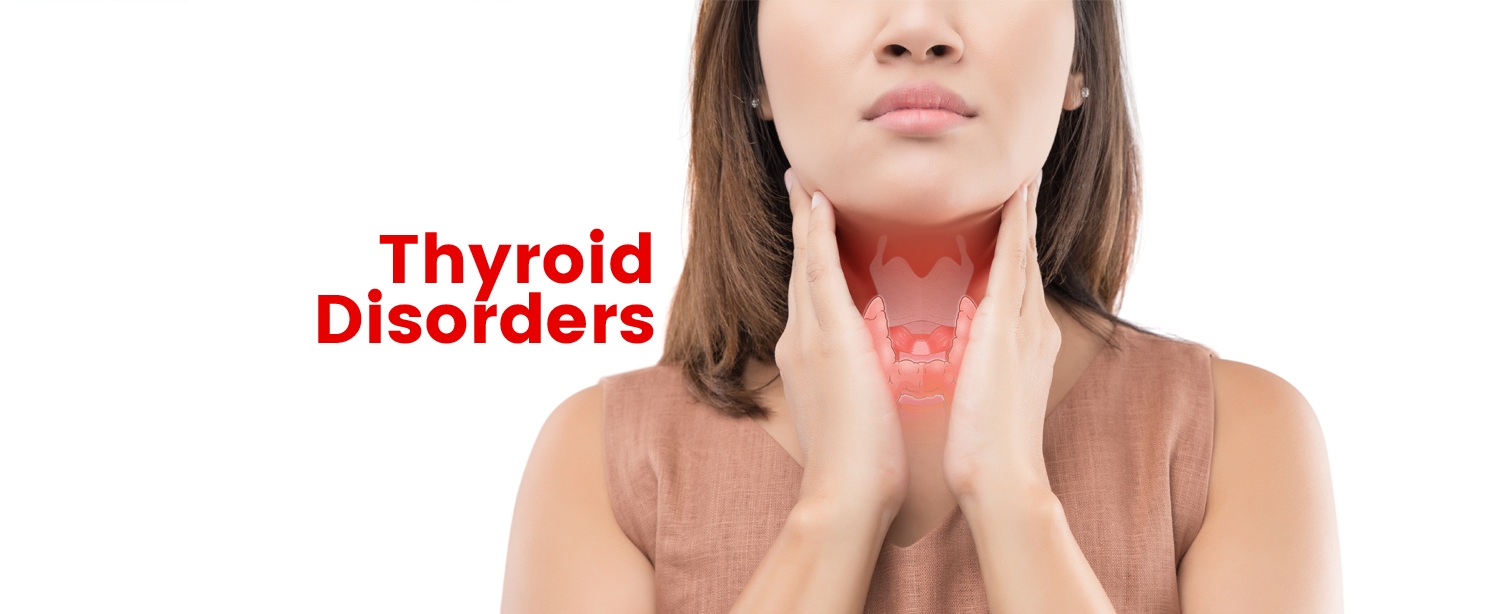Thyroid Disorders in Women, Thyroid Symptoms, Diagnosis and Treatment: A thyroid problem occurs when the thyroid gland enlarges or the body is unable to produce enough thyroid hormone. These conditions may have an impact on the thyroid gland, which has a butterfly shape and regulates a number of vital functions of the body. A lack of thyroid hormone impacts the body’s many cell functions, growth, and development.

Causes of Thyroid disorder in women
The thyroid gland creates hormones that regulate the thyroid. This gland can be found in the lower neck area, just below Adam’s apple. Iodine is necessary for the body to produce thyroid hormones, that gets from food sources including salt, seafood, and other grains and is used by the thyroid gland to make thyroid hormones. A lack of iodine can lead to hypothyroidism, a condition in which the body produces insufficient thyroid hormones.
Women are indeed more likely than males to experience thyroid problems. One of the thyroid disorders that affect women the most frequently is hypothyroidism. If your thyroid gland does not generate enough hormones, you could develop hyperthyroidism.
Typically, this disease may be brought on by an issue with your hypothalamus, pituitary gland, or thyroid gland. Here are some common Symptoms of hypothyroidism in women
- Excessive bleeding during the period
- Depression and mood swing
- Pain or cramps in joints and muscles
- The hands & feet are colder than usual
- Constipation, gastric, bloating and acidity
- Skin becomes flaky & dry
- Constant fatigue and dry hair or hair fall
- Lack of concentration
- Memory loss, trouble remembering or learning things
- Weight loss
Diagnosis and Treatment of Thyroid Disorder
- Thyroid hormone blood tests, such as those for T4, T3, and TSH, are one of the right ways to diagnose this health issue.
- The straightforward and affordable treatment for thyroid diseases frequently lasts for a long time.
- The patient is advised to take the daily dose of Thyroxine tablet on an empty stomach, for a long time
- Thyroid medication should be used following test results, or your doctor prescribes the appropriate amounts of thyroxine medication based on the test report.
Also Read: Scarlet Fever Symptoms, Care, Treatment, Prevention Tips
A necessary dietary supplement for general thyroid health
Iodine supplementation is essential for thyroid health as iodine deficit leads to thyroid disease. Iodine is a component of both triiodothyronine (T3) and thyroxine (T4), the thyroid hormones.
Selenium, zinc, calcium, iron, and other minerals including the Vitamin D, B vitamins, A, and E vitamins are also essential for women with common thyroid disease.
Natural Treatment for Thyroid Problems
- Although vitamins and nutrition supplements are crucial for the treatment of thyroid issues or for maintaining healthy thyroids.
- Your daily diet needs to include more fresh produce if you want to improve your body’s balance.
- Enough sleep, well-nutrition food, and regular meditation can also reverse your thyroid problems.
- You may, however, consume gluten-free food like oats, buckwheat, amaranth, quinoa, porridge, brown rice, rice cakes, rice noodles, and rice crispier.
Foods to Avoid If You Have Hypothyroidism
- You must avoid the following foods to regulate your thyroid or treat thyroid problems naturally.
- It is better to stay away from stimulants like coffee, tea, alcohol, and even smoking. Additionally, foods with chemicals and preservatives need to be avoided.
- Avoid grains and starches like farina, bulgur, rye, barley, wheat, wheat germ, and so on.
- Avoid foods high in goitrogen: Examples of foods high in goitre include cabbage, cauliflower, brussels sprouts, kohlrabi, turnips, rutabagas, radishes and kale. As foods high in goitrogen hinder your body from absorbing iodine. It disrupts thyroid gland operations and prevents thyroid hormone production.
- Avoid any polyunsaturated fats since they prevent the proper function of the proteolytic enzymes. Examples of such fats are vegetable oil, soybean oil, safflower oil, and fish oil.
